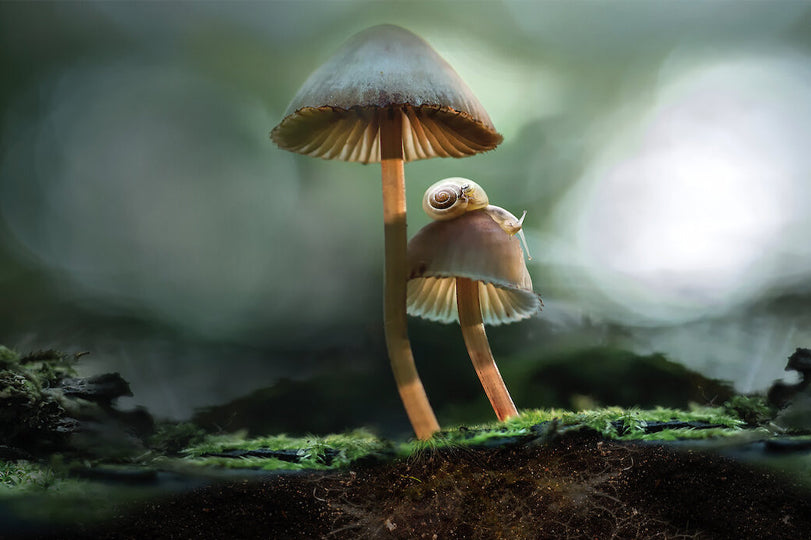The average person on the street, when asked to explain what ‘fungi’ means to them will perhaps think of the classic red and white spotted variety commonly depicted in paintings and films, and of eating mushrooms at breakfast, perhaps having an unwanted fungal disease … or that they are widely used in life-saving medicine worldwide – such as penicillin.
A moment’s further thought will bring the realisation that fungi are responsible for many of the staples and pleasures of our everyday lives – the yeasts which make bread, alcohol, and cheese, for example.
But fungi are much more than that, and just how much more is astonishing. Humans are learning quickly that fungi are a very special, and very enormous kingdom of organisms, which are truly remarkable. There are an estimated 4 million types of fungi on earth, of which a relatively small amount have been properly identified and described (less than 6%).
A new film, now released onto popular streaming sites Netflix and Amazon, seeks to enthuse everyone with a passion for these seemingly unprepossessing organisms. Featuring stunning time lapse photography, easy to understand information, some CGI and fascinating new insights into this mostly hidden world, “Fantastic Fungi” was made in 2019 by Louie Schwartzberg.
Most people may not be aware that fungi have more similarities to animal kingdom than plants, which has changed how scientists have viewed them over the years – mycology was formerly considered a part of botany. New research detailed in the film has shown how some fungi effectively farm trees, controlling and communicating via resources through root structures in a symbiotic relationship.
Fungi decompose organic compounds, which is why their fruiting bodies are a common sight in autumn, and why they are a vital part of any ecosystem. Along with bacteria, they are the largest type of decomposer and nutrient recycler. The fact that up to 60% of known plant types have relationships with fungi is well known, but the extent of this occurrence is being expanded every day with new knowledge. This mycorrhizal symbiosis dates back to at least 400 million years on earth.
In the 80 minute long film, the complex relationship of human evolution and fungi is explored, with some jaw-dropping theories from several experts and research scientists. More hopefully, potential answers to many modern environmental issues may lie in the kingdom of the fungi, and this part of the film is truly uplifting. Forbes magazine said “[this is] … a must see for anyone interested in the pursuit of this planet’s future well-being.”











